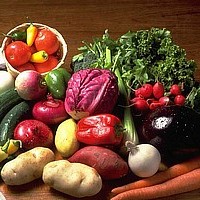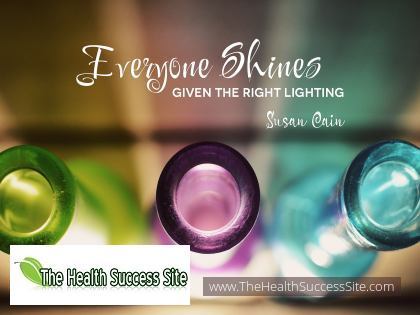| Back to Back Issues Page |
 |
|
Guide to Genetically Modified Foods" - Your Health Success ezine September 26, 2017 |
I hope you enjoy the e-zine as much as I do writing it. Index: Optimum Health Tip: Quote of the Day: Health Report: Guide to Genetically Modified Foods Recommendations & Sponsors Warren’s Notes Have a Laff! Inspirational Meme: Your ebook download "How to Live to 100" Thank you to my readers who refer other people to my ezine. If they want to subscribe for the next edition, they can just visit the website and subscribe here: SUBSCRIBE to eZine If you ever decide that you want to unsubscribe, you will find the link to do so at the bottom of this page. (But we will really miss you!) Optimum Health Tip:Not getting enough sleep can affect your immunity and make you susceptible to illness, so get enough!Not getting enough sleep is not only bad for your health, but it can be dangerous too. It leads to poor decision making that can lead to accidents and other harmful incidents. Studies show that people regularly getting less than 6 hours of sleep each night are more susceptible to high blood pressure. Limit stimulation near bedtime. Turn off the TV and read a book, take a bath or listen to relaxing music. A quality mattress should be replaced every 8-10 years for optimal sleep. Need a better sleep? Remove the TV and digital devices. Use your room for sleep and s'ex only. Naps can ruin your sleep schedule, so don’t make them a habit, or getting a good night’s rest can become difficult. Vitamin B6 helps your body make melatonin, a sleep-inducing hormone. Eat meat, fish, vegetables, whole grains and nuts to get your B6. Motivating Quotes:"The first wealth is health." - Ralph Waldo Emerson "Rest when you're weary. Refresh and renew yourself, your body, your mind, your spirit. Then get back to work." "True friendship is like sound health; the value of it is seldom known until it is lost." REPORT: "Guide to Genetically Modified Foods"
What studies have shown about these foods and the potential damage they can cause to humans and animals alike isn't good news. With the desire to create foods from plants and animals that are thought to be superior to more natural breeding methods, genetically modified foods were introduced. These are also known as bioengineered foods. Whenever you're putting anything into your body, you need to know its source and how it can benefit or damage your physical health. What Does Genetically Modified Mean? These are foods in which the genetic makeup has been altered. This alteration is caused by the implantation of other genes from other foods or animals, from viruses, from insects and even from the bacteria normally found in the soil. These modifications are placed in the original product and it forces cell changes that are safe or healthy for humans to eat. It used to be that breeders of plants or animals took part in cross breeding of various species to create a better, sturdier hybrid version of two originals. The way it worked was that the breeder chose animals or plants that had highly sought after features. They then mixed these to create what they wanted in the hopes of gaining a new product. It was assumed that this mixture would create a more superior animal or plant. This type of cross breeding was relatively harmless. However, those who work in biotechnology have taken the idea several steps forward and use a lab to mix genes from all types of products. The goal for this type of genetic alteration was done because it was thought that by creating genetically modified foods, the food would not only taste better - but that it would also be better for people to eat. Another thought was that these foods could be created to withstand issues that were known to damage other plants or animals. Some of these issues were pests, poor water supply, weather related issues and diseases. It was thought that by mixing one gene with another gene, a plant would be created that could then naturally fend off pests. Instead of having to use chemical based pesticides to protect the plant, the plant could protect itself by creating its own natural pesticide. It was also thought that if genes could be injected into plants in order to create plants that could withstand a chemical onslaught from pesticides, that the plant would be safe - but the pesky weeds trying to grow in the same area would die off. By being able to protect itself, it was thought that the crops of these plants had a higher chance of reaching maturity, cutting down on loss to growers and ensuring enough food supply for an ever growing world population. The proponents of genetically modified foods also thought that these foods would have a faster growth cycle. This faster cycle would mean that foods could be produced and delivered with less cost to the manufacturer. What Are Some of the Genetically Modified Foods? You might be surprised at the foods that have already undergone genetic changes. There are a lot more than you think. You'll find these foods in natural, canned, bagged or frozen varieties. In fact, studies have shown that more than half of the everyday foods consumers buy at the store to feed themselves and their families has been genetically modified. As a consumer, you might believe that any changes to the food products you consume would be clearly labeled with this information - especially if anything in the product could cause health issues for you. It should be clearly labeled so that all consumers have the choice in whether or not to buy them. But this isn't the case. Foods that have been altered through the means of genetic changes don't have to be labeled with this information - even though they can cause adverse health issues. In fact, on the FDA website, it states that the labeling of these foods is on a volunteer basis. Many manufacturers have chosen not to identify the food as containing any genetic modification. So you could buy and eat these foods and not even know it. That's why it's important that you know which foods have been genetically modified. By avoiding these foods, you can prevent long-term problems that have been associated with these genetic changes. One of the biggest foods known to have been genetically modified is corn. You'll find this in many foods that humans eat - but you'll also find that it's in animal food as well. Almost 90% of foods that contain a corn product have been genetically modified. You only need to check your kitchen to see examples of this. If you have cookies or crackers or foods that contain corn syrup, then you have a food that's been altered. Besides corn, soy is also genetically modified. And the percentage of soy that's been genetically modified is even greater than the percentage of corn. Almost 95% of all soy has been altered. If a food contains the words hydrogenated oils, then it's been modified. This modified form of soy is even found in baby formula and the fact that it's been genetically altered isn't on the label, so parents don't even realize they're giving this to their babies. Though soy has been touted as healthy and even good for consumption, the truth is that since most soy has been genetically modified, it's extremely unhealthy - especially for babies. Studies have shown that consuming altered soy can lead to the development of allergies and malnutrition. It's also been known to cause digestion and immune problems. You'll find that soy isn't the only genetically modified ingredient that parents unknowingly feed to their babies. If it has corn in it, then it's probably been genetically altered. What some people have done to try to avoid eating genetically modified foods is to purchase only organic foods. But even organic foods are not always 100% free of these alterations.
Recommendations & Sponsors:Our Sponsors and Affiliates are what keep this newsletter and our website self help books, articles and resources free to you, so we appreciate your support when purchasing from our sponsors. I'd love to help you with your optimal health and weight goals! Learn more here (<= tap or click image button)about the products that I've been taking myself for over 25 years, and that have helped millions of people. I'd love to help you with your optimal health and weight goals! Learn more here (<= tap or click image button)about the products that I've been taking myself for over 25 years, and that have helped millions of people. Products can be ordered online and delivered to your door almost anywhere in the world. Open the page with password: WT (in capitals) One of the most powerful products I can recommend to my clients is the Thermojetics Beverage. It speeds up your metabolism and boosts your energy to burn more fat faster. Delicious range of flavours, mix instant crystals with hot water or juice, enjoy in dozens of different ways throughout your day. Just ask me for more info about Thermo or check out the page linked to below.  Being asked for a Password to view a site page? Not a problem! Some of the site product pages are available only to Subscribers like you to view, that we have ongoing contact with, so they are password protected. Just enter WT (in capitals)to open the page.
REPORT: "Guide to Genetically Modified Foods" continued:How Is Genetically Modified Food Affecting Your Health?When you eat foods that have been genetically modified, you're at a greater risk of having a potential allergic reaction - especially if you already have allergies. Genetically modified foods have been known to cause allergies in consumers. An allergic reaction to something happens as a result of your body's immune system attacking a foreign body in order to try to keep you safe. Since humans were never meant to eat these altered food products, the body's immune system kicks in and attacks these foods once they're in your system. Not only does this process then cause an allergic reaction, but you can also run the risk of having a greater reaction. This can happen because some of the genetically modified foods can be modified with foods that a person is extremely allergic to. You can come into contact with trace elements when a food such as a peanut's genetic makeup is inserted into another food. The genes in a food or animal product are designed to work in a way that's best for that plant or animal. Even though there may be genetic flaws, these flaws only impact the original plant or animal. It doesn't affect a human. However, when trying to create a superior product by modification, the genes can be altered in such a way that they become dangerous to a human's long-term health. Eating genetically modified foods increase your chances of developing certain types of cancer. Two of the largest risks of cancers associated with these changed foods are stomach and colon cancers. These cancers can happen because some of the modified DNA is infected with a virus. This virus then causes changes to the modified DNA. And what's so scary about these changes is that your stomach and digestive tract can't break this DNA down and remove it from your body. That means this rogue DNA, which wasn't present in the food until it was genetically modified, can cause harm to your body without you even knowing that it's happening. And studies have been conducted that prove that genetically modified foods do cause some pretty serious health risks when they're consumed. In one study involving rats, it was proven that digestion problems occur. Rats that were given genetically modified foods to eat were found to have intestinal damage and liver problems. A diet that contained these foods also caused death in young rats. Trying to modify food sources also causes superbugs to flourish. Genetically modified foods have been shown to cause an increase in disease resistant bacteria. Whenever animals are given large amounts of antibiotics in order to kill germs and to boost production, human health pays the price. What happens is that humans eat these foods with these genetic changes. The attempt to kill off germs that affected the animals was not one hundred percent successful. Some germs were able to survive the antibiotic. This increases a human's risk of developing a serious illness that's resistant to antibiotics and other treatments. The result is the formation of a superbug. How Genetically Modified Foods Affect the Environment One of the supposed reasons for creating genetically modified foods was to make a food source that was more resistant to pesticides than normal foods. This didn't mean that growers stopped using pesticide. What it meant was that the growers wanted crops that could be sprayed, but the pesticide wouldn't kill the crop - just the pest or weeds. But, this wasn't always successful - and some of the pests became resistant to the pesticide. Because of this, even stronger pesticides known as neonicotinoids had to be used. This has a dangerous side effect for humans.
Warren’s Notes : Hi Again,
Hi Again,
As usual, I hope your week has been kind to you. Were I live in rural Victoria in Australia we are just coming out of Winter and into our Spring. A few weeks ago we were having frosts every night and days were chilly and not very pleasant. I have been spending time at my office and working in front of an open fire, as I have said. Now the weather had turned and the days are sunny. Nights are cool but not freezing. This weekend, after a week with just too much time on the computer, we have been doing some work in the garden. Being in a rural setting we have a larger house block. It is a traditional 1/4 acre (1,100 square meter) block so we have room for things like keeping chooks and having a Labrador dog running around in the yard. We also have a dedicated area for a vegetable patch, and other garden spaces. I have some herbs and things like silver-beet (chard) in the garden. The weeds have got up and I have been clearing and preparing to plant for spring/summer vegetables. With the articles on GM foods I have been pondering this. My garden is for our kitchen but also a project that gets me outdoors and digging in the ground. My wife has tidied an area near where we can sit outside and has planted coriander, and parley, and lemon grass, and sage, there. We also have thyme and rosemary plants established. It does not take a lot of area to have a herb garden, you can even plant in pots on a balcony. Tomatoes can be grown in pots as well. Even in winter you can grow chives and spring onions and things to cut fresh into cooking. For me, to be able to go out and collect all the herbs needed for a dish and to cook with vegetables that are fresh picked from the garden is about more than just avoiding GM foods and those depleted vegetables that have spent more time in storage than they spent growing. It is about the whole process of preparing soil, planting, growing and then having the product at the end of that to use in your own kitchen. That is what has taken up my weekend. If you haven't got around to growing herbs and vegetables for a while I recommend making the effort and getting back to it. Best wishes for the coming week. Warren
Remember, any time you want to learn more about anything in this ezine, or just need a chat about your health, drop me a line and I'll email back as soon as I can, and if you leave your phone number I'll even call you back on my dime! Have a Laff!Wisdom of Kids:When your dad is mad and asks you, "Do I look stupid?" don't answer him. Heather, age 16 Never tell your mom her diet's not working. Michael, age 14 Don't flush the john when your dad's in the shower. Lamar, age 10 Never ask for anything that costs more than $5 when your parents are doing taxes. Carol, age 9 Don't pick on your sister when she's holding a baseball bat. Joel, age 12 Never spit when on a roller coaster. Scott, age 11 Listen to your brain. It has lots of information. Chelsey, age 7 Stay away from prunes. Randy, age 9 Forget the cake, go for the icing. Cynthia, age 8 Never try to baptize a cat. Laura, age 13
If you have any questions or would like to have direct contact to discuss anything related to this page, nutrition products or working with the nutrition industry then please send a note through the Contact Us form here on The Health Success Site And you can also learn more about me on my profile page here: Warren Tattersall ~*~*~*~*~
Thank you for joining us this week, I hope that you have found some extra motivation and inspiration to achieve lifetime optimal health! To update yourself on our new resources and lifetime optimal health strategies just go to
Your Health Online at The Health Success Site Your Editor,
Just mouse over the link below and click "right mouse button" and select "save target as" from the window that appears, to save this 200+ page book to your computer ENJOY!
~~~~~~~~~~~~~~~~~~~~~~~~~~~~~~~ DISCLAIMER: All information is intended for your general knowledge only and is not a substitute for your counselor’s advice or treatment. Use of these products and tips are at your own risk. We make no warranty, express or implied, regarding your individual results. ~~~~~~~~~~~~~~~~~~~~~~~~~~~~~~~ DISCLOSURE: I may be an affiliate for products that I recommend. If you purchase those items through my links I will earn a commission. You will not pay more when buying a product through my link. In fact, I oftentimes am able to negotiate a lower rate (or bonuses) not available elsewhere. Plus, when you order through my link, it helps me to continue to offer you lots of free stuff. :) Thank you, in advance for your support! No Liability This product is provided “as is” and without warranties. Use of this product indicates your acceptance of the "No Liability" policy. If you do not agree with our "No Liability" policy, then you are not permitted to use or distribute this product (if applicable.) Failure to read this notice in its entirety does not void your agreement to this policy should you decide to use this product. Applicable law may not allow the limitation or exclusion of liability or incidental or consequential damages, so the above limitation or exclusion may not apply to you. The liability for damages, regardless of the form of the action, shall not exceed the actual fee paid
for the product. Note: Articles in this ezine may concern health treatments and references to trademark brands. These articles are supplied for entertainment purposes only. Any claims that are made in your use of them and any consequences of your use of them are your own responsibility. You are advised to take legal advice in relation to setting up disclaimers and other aspects of your business. ~~~~~~~~~~~~~~~~~~~~~~~~~~~~~~~ Unsubscribe only if you want to stop receiving this ezine. Instructions are below. ~~~~~~~~~~~~~~~~~~~~~~~~~~~~~~~ |
| Back to Back Issues Page |







